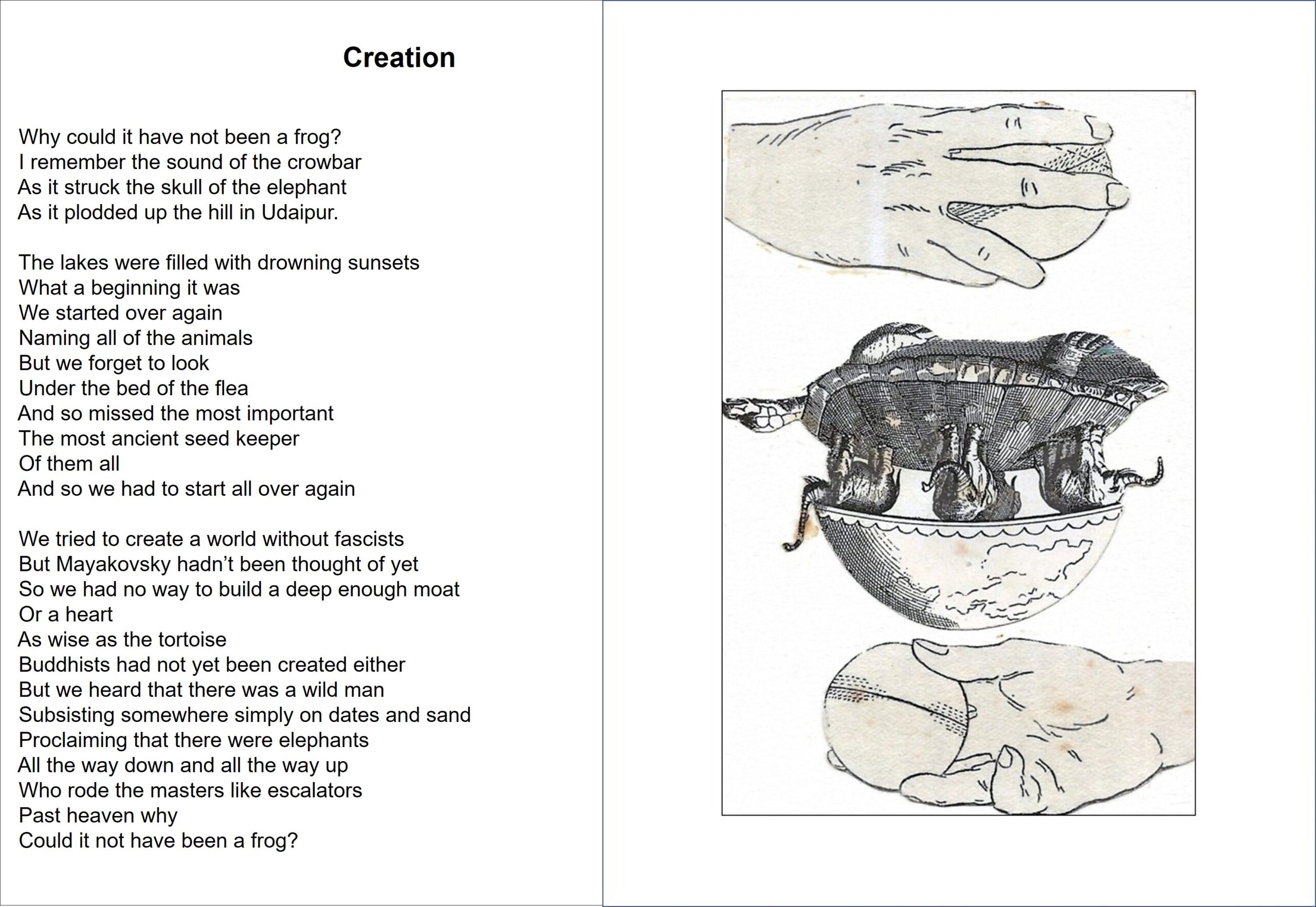In examining the intricacies of existence, one might contemplate: what is the most compelling evidence for a Creator? The Bahá’í faith, with its rich tapestry of teachings, presents Creation itself as a profound argument for the existence of a Divine Intellectual Designer. This inquiry invites both exploration and introspection, challenging one to appreciate the sublime complexities of the universe while pondering the underlying principles that govern its very fabric.
To embark upon this exploration, we must first delineate the essence of Creation within the Bahá’í framework. Creation is not merely the act of bringing forth matter; it is an ongoing process that signifies the continuous unfolding of reality, embodying divine wisdom and purpose. In this context, Creation is inherently a reflection of its Creator, imbuing the universe with meaning and connectivity. It becomes imperative to view Creation as a dynamic interplay of forces, where everything from the cosmic expanse to the minutiae of life harmonizes under a grand cosmic symphony.
As one gazes upon the vastness of the cosmos, the question arises: can such complexity be attributed solely to random occurrences? The Bahá’í teachings suggest otherwise. The intricate laws governing the celestial bodies, the precise balance within ecosystems, and the evolution of life forms impose an imperative to discern intentionality at work. For instance, the astonishing synchronization seen in natural phenomena—such as the changing seasons, the orbits of planets, and even the intricate mechanisms within cellular structures—points toward a coherent design. This observation leads to a theological assertion: a Creator is both the initiator and sustainer of such marvels.
This brings us to the concept of duality within Creation. In the Bahá’í view, Creation consists of both the material and the spiritual realms, wherein each complements the other. While science elucidates the empirical workings of the physical universe, the spiritual aspects afford a more profound understanding of purpose. Therefore, to engage fully with Creation necessitates a multifaceted approach where both the tangible and intangible dimensions are acknowledged and integrated. Through this lens, the challenge becomes not merely to observe phenomena but to interpret their significance within a greater existential narrative.
Beyond the empirical observations lies the intricate tapestry of human experience itself, further substantiating the argument for a Creator. Humanity, imbued with the capacity for reason, reflection, and creativity, raises a pivotal query: how do we reconcile our innate longing for purpose with a seemingly indifferent universe? The Bahá’í teachings emphasize that this profound yearning is not coincidental but rather indicative of our spiritual origins, suggesting that we are the epitome of Creation’s aspirations. Consequently, our ability to question, innovate, and bond reflects our Divine heritage, positioning us as not only observers of Creation but active participants in its ongoing narrative.
The inherent paradox of human existence—a blend of temporal impermanence juxtaposed against the quest for eternal significance—strikes at the heart of the Bahá’í concept of Creation. It becomes apparent that dismissing the notion of a Creator may lead to existential nihilism, where the richness of life is rendered devoid of meaning. Conversely, acknowledging a Creator allows for a radical shift in perspective; it fosters an appreciation of life as a sacred gift, laden with opportunities for both personal growth and collective progress. This recognition culminates in a call to embody virtues such as compassion, justice, and unity—principles that are central to Bahá’í teachings.
Yet, one may pose a playful challenge: if Creation is the argument for a Creator, how does one reconcile the presence of suffering and evil in the world? This question has perplexed theologians and philosophers across centuries. Within the Bahá’í framework, suffering is not devoid of purpose. It is often seen as a crucible for growth, helping individuals cultivate patience, resilience, and empathy. Thus, the existence of pain can be interpreted as an integral component of life’s journey, which ultimately leads toward the fulfillment of human potential and the realization of our spiritual essence.
Moreover, the Bahá’í perspective posits that the gradual revealing of religious teachings throughout history is a testament to the evolving understanding of Creation’s complexity. Each prophetic figure, culminating in Bahá’u’lláh, has provided insights and revelations suited to the needs of their time, embodying the progressive nature of divine guidance. This principle aligns with the notion that Creation itself is not a static event, but a living process that beckons humanity to continuously seek knowledge, innovate, and aspire towards higher ideals.
In closing, the Bahá’í teachings encompass a holistic view of Creation as a compelling argument for the existence of a Creator. The intricate interdependencies exhibited within the cosmos, the profound human quest for meaning, and the theological implications of suffering all intertwine to present a nuanced understanding of existence. The call to recognize the Creator through Creation invites not only a deeper appreciation for the beauty and complexity of our world but also an enduring commitment to live in ways that reflect our divine potential and collective responsibility. Embracing this perspective may indeed catalyze transformation, urging individuals to engage with the universe not merely as passive recipients but as active co-creators within the grand design of existence.
